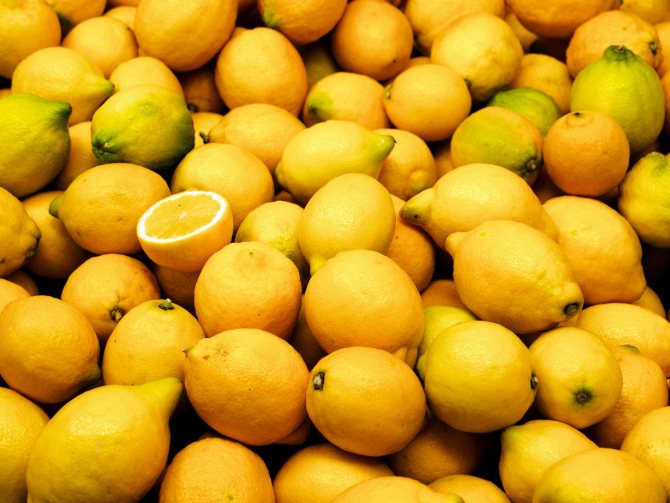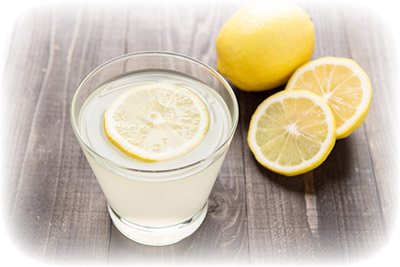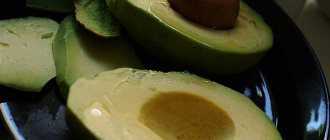Composition and calorie content of lemon
Lemon is a tree-like plant that grows in a subtropical climate.
Lemon is an exotic fruit that does not grow in central Russia. The product reaches the shelves after transportation from India, China, Mexico, Argentina, Turkey and other regions with hot climates. Since ancient times, it has been known about the unique property of lemon to support the immune system during periods of colds. This is due to the high content of vitamin C - ascorbic acid, which also strengthens blood vessels and connective tissue. At the same time, lemon is not the undisputed leader among food products in terms of the content of this nutrient. It is worth taking into account that vitamin C is extremely sensitive to high temperatures and is destroyed when heated above 60 degrees. For this reason, fresh lemon or as part of non-hot drinks is most useful, but there is almost no vitamin C in lemon baked goods, pies and desserts.
Gourmets value lemon for its characteristic refreshing sourness, characteristic of organic acids (including citric acid), which are abundantly present in the fruit. Lemon contains vitamins B, E, and PP. The mineral composition contains potassium, calcium, magnesium, phosphorus, copper, iron, and natural plant antioxidants. The characteristic citrus scent of lemon is provided by the essential oils contained in the peel of the fruit. Lemon aroma is known for its invigorating effect on the body. The calorie content of lemon is low - only 30–35 kcal per 100 g, which allows it to be classified as a dietary product.
Table: chemical composition and calorie content
| Nutrient | Quantity | % of the norm in 100 g* |
| Calorie content | 34 kcal | 2% |
| Squirrels | 0.9 g | 1.2% |
| Fats | 0.1 g | 0.2% |
| Carbohydrates | 3 g | 1.4% |
| Vitamins | ||
| Vitamin A, RE | 2 mcg | 0.2% |
| beta carotene | 0.01 mg | 0.2% |
| Vitamin B1, thiamine | 0.04 mg | 2.7% |
| Vitamin B2, riboflavin | 0.02 mg | 1.1% |
| Vitamin B5, pantothenic | 0.2 mg | 4% |
| Vitamin B6, pyridoxine | 0.06 mg | 3% |
| Vitamin B9, folates | 9 mcg | 2.3% |
| Vitamin C, ascorbic acid | 40 mg | 44.4% |
| Vitamin E, alpha tocopherol, TE | 0.2 mg | 1.3% |
| Vitamin RR, NE | 0.2 mg | 1% |
| Macronutrients | ||
| Potassium, K | 163 mg | 6.5% |
| Calcium, Ca | 40 mg | 4% |
| Magnesium, Mg | 12 mg | 3% |
| Sodium, Na | 11 mg | 0.8% |
| Sera, S | 10 mg | 1% |
| Phosphorus, Ph | 22 mg | 2.8% |
| Chlorine, Cl | 5 mg | 0.2% |
| Microelements | ||
| Iron, Fe | 0.6 mg | 3.3% |
| Manganese, Mn | 0.04 mg | 2% |
| Copper, Cu | 240 mcg | 24% |
| Molybdenum, Mo | 1 mcg | 1.4% |
| Fluorine, F | 10 mcg | 0.3% |
| Zinc, Zn | 0.13 mg | 1.1% |
% of the norm in 100 g* - approximate values for a middle-aged nursing woman
When should you not eat it?
However, despite all the obvious benefits of citrus, in some cases it is not worth eating lemon during lactation. There are three main risk factors when consuming this product:
- Possible allergic reactions in a child. Do not forget that lemon is not a strong allergen, like most other citrus fruits. Still, the risk of allergic manifestations in an infant is possible. And often it’s not the fruit itself, but its storage and pre-processing. Often the fruits are picked from the tree while still green, and various chemicals are added to impart ripeness. In addition, lemon peel is also often treated with various means to preserve the fruit for a longer period. For this reason, purchased fruits must be thoroughly washed under running hot running water.
- Digestive problems for mother and child. The baby's body is not yet as resilient as that of adults. Citrus fruits can have a laxative effect, which can be a plus for mom. In babies, negative reactions to lemon can occur in the form of diarrhea, gas formation and colic in the intestines. In addition, lemon should not be consumed by the mother herself if she suffers from chronic diseases of the digestive system.
Important! A nursing mother should refrain from eating citrus fruits in the first three months of a newborn's life.
Lemon is an extremely healthy product. This fruit is a real storehouse of vitamins and beneficial elements. And yet, a young mother should not forget that during the period of breastfeeding she eats not for two, but for two. Therefore, any uncontrolled eating of foods, including citrus fruits, can cause damage to the baby’s body. So during the lactation period, the mother’s motto is “moderation in everything.”
Beneficial properties of lemon during breastfeeding

Tea with lemon helps increase lactation by enriching body tissues with warm liquid. The composition of milk also improves when consuming lemon; the baby receives vitamin C and other beneficial substances during feeding. We list the main beneficial properties of the product during lactation:
- Strengthens the immune system due to its high vitamin C content.
- Has an anti-inflammatory and antiseptic effect for throat diseases.
- Helps the functioning of the heart due to the presence of potassium, magnesium, and zinc in the composition.
- The bioflavonoid rutin in lemon improves the condition of blood vessels and increases the elasticity of capillaries.
- Removes toxic substances from tissues and helps cleanse the blood.
- Improves the functioning of the gastrointestinal tract, as it contains dietary fiber.
- It has a mild diuretic effect and prevents swelling.
- Vitamin E contained in lemon takes care of the beauty of skin and hair.
- Positively affects metabolism, speeds up metabolism and promotes weight loss.
Possible harm and contraindications

The main feature of creating a menu during lactation is to avoid foods that can cause allergies or digestive problems in the baby. From this point of view, lemon can negatively affect the baby’s well-being, because citrus fruits often cause allergic reactions. However, this does not mean that lemon consumption is prohibited. It is recommended to introduce the product into the diet 2–3 months after birth in limited quantities, observing the child’s reaction. Let's consider other possible negative effects on the body of mother and baby:
- increases stomach acidity;
- weakens tooth enamel, increases gum sensitivity when taking fresh lemon or juice;
- may cause disturbances in the baby's digestive system.
Contraindications for consuming lemon:
- gastrointestinal diseases;
- caries and gum sensitivity;
- allergy to citrus fruits;
- heartburn.
Rules for use during breastfeeding

Lemon is not contraindicated during breastfeeding and can benefit mother and baby if you follow the rules of caution when consuming it. Be guided by the following principles:
- You can try lemon for the first time 3 months after giving birth.
- Introduce the product in small doses - starting with a small slice, observing the baby's reaction.
- If there is no rash, redness of the skin, or disturbances in the child’s digestion within 2 days after the mother consumes lemon, the dose can be gradually increased.
- The daily intake of the product for lactating women is no more than 50 g.
- It is recommended to eat lemon fresh or adding it to drinks. In hot water, the beneficial properties of the fruit are lost.
- To avoid the negative effects of lemon acids on enamel, it is recommended to rinse your mouth with water after consumption.
- When planning to drink tea with lemon, make sure the tea leaves are of good quality.
- If you suspect an allergy in a mother or baby, lemon should be excluded from the diet.
try a little at a time, first with half a lemon (slices), look at the reaction, if everything is normal, then go ahead. I did this
Yulyasha
https://www.baby.ru/blogs/post/42350227–8461012/
If the little one doesn’t have a reaction to citrus fruits, then, of course, it is possible and necessary!!!
Kate
https://www.baby.ru/community/view/3335924/forum/post/85796223/
I’m sitting here drinking tea, with lemon, but there are no raspberries:( Only one side effect of the tea is that for two days my breasts feel like two cobblestones, it’s just terrible:( My son doesn’t eat even a third of his breasts, and in the process, he gets bloated as if he hadn’t eaten: (
A little prince
https://www.babyblog.ru/user/Tsybulay/2990623
How to make tea with lemon
You need to choose good quality tea leaves (leaf), without additives or flavorings. Black is preferred (green has too much caffeine). First, prepare the tea, steeping the drink for 2-3 minutes, no longer. A nursing mother can drink exceptionally weak tea, so it is important to observe the proportions of tea leaves and boiling water. For one cup - a quarter of a teaspoon. If the drink turns out to be too strong, it will contain a huge amount of tannins (they have strong strengthening properties) - they cause constipation in the baby.
Before peeling the fruit, it is recommended to pour boiling water over it to get rid of bacteria. A slice of lemon should be added to an already cooled drink. Because high temperatures destroy vitamin C.

A nursing mother can treat herself to lemon tea, but it is important to monitor the baby's reaction. In addition, portions should be small. Otherwise it will affect the nervous system.
It happens that the first acquaintance with this product was unsuccessful. For example, a rash appeared. Don't give up citrus right away. Perhaps lemon tea was introduced into the diet too early or the amount of lemon was too large. The experiment can be repeated after a few weeks. Another possible reason is a bad time when immunity is low. For example, the baby was worried about teeth or colic. If a negative reaction manifests itself as anxiety or excessive excitability, drinking the drink should be postponed to the morning.
How to select and store

On the shelves of modern stores there are dozens of varieties of this juicy fruit with a characteristic sourness. Externally, fruits may differ in size, shade, peel structure and other characteristics. You can find lemons that are elongated, round, with thick or thin skin. Each variety has distinctive characteristics that do not affect the quality or beneficial properties. But if the product is bitter, it means it was either stored incorrectly or was treated with chemicals. Bitterness is also characteristic of unripe fruits. Here are the main quality criteria that you should pay attention to when buying lemons:
- There should be no dark spots or dots on the surface.
- The peel is dense and elastic, without areas of wrinkling.
- There is a distinct lemon aroma.
- The color of lemon is only yellow.
- When you lightly squeeze the fruit in your hand, it does not deform. If dents remain, it means the fruit has been stored too long and has lost moisture.
- Hard and greenish fruits are not yet ripe and may taste bitter.
- By applying a napkin to the surface, you can see traces of essential oil on it. This means that the lemon is completely fresh, its surface has not yet “dried out”.
It is known that lemons with thin, smooth skins have a higher concentration of vitamins and minerals in their composition and are more juicy than fruits with thick skins. Unripe lemons can be stored in the refrigerator for several months. If necessary, they can ripen at room temperature in 3–5 days. It is not recommended to freeze lemons, as they lose their beneficial properties. If you plan to consume the lemon immediately, it is worth buying the fruit when it is fully ripe.
Methods of use

The optimal way to consume lemon for a nursing mother is as part of drinks. An abundance of fluid is necessary to improve lactation, and the beneficial components of lemon will enrich the composition of breast milk. When planning to drink tea with lemon, make sure the water temperature is less than 60 degrees before adding a slice of lemon or a few drops of juice. A particularly good combination is green tea with lemon. Ascorbic acid improves the absorption of antioxidants, which the drink is so rich in. Cool drinks with lemon are also useful and will help you cool down in the heat. Before eating, it is recommended to wash the fruits in hot water with a brush to get rid of chemical components that may have been used to treat the fruit.
A nursing mother can add lemon juice or fruit pulp to the following dishes:
- salads;
- snacks;
- meat;
- fish;
- vegetables;
- desserts and others.
Lemon juice can be used as a herb to replace unhealthy salad dressings and hot spices. The zest of the fruit is used in the preparation of desserts and baked goods and adds an appetizing aroma to the dish. Candied fruits - dried lemon slices - are also appropriate in the diet of a nursing mother. Unlike fresh fruits, they have a sweetish taste and can be a healthy alternative to candies and confectionery sweets.
The white partitions between the lemon slices and the peel of the fruit contain a special substance - limonene, which has an anti-cancer effect, reducing the risk of developing breast cancer.
Photo gallery: dishes and drinks with lemon

Lemon juice can be used as a dressing for vegetable salads

By adding lemon to banana puree, you can avoid darkening of the finished dessert.

The combination of lemon and ginger is popular in the formulation of weight loss drinks.

Lemon can be used as a component of chicken marinade

Lemon gives the ice cream a piquant sourness.

Lemon and mint go well in chilled drinks.

It is recommended to drizzle the finished fish with lemon juice.
Recipe: lemonade with honey

Before drinking this drink, make sure that the child is not allergic not only to lemon, but also to honey.
Ingredients:
- water 2 l;
- lemon 1 pc.;
- honey 3 tbsp. l.
Cooking process
- Wash the lemon and cut into pieces.
- Boil water and cool to a temperature of 60 degrees.
- Pour warm water over the lemons and crush with a spoon.
- Add honey and mix thoroughly.
- Cool to desired temperature and drink.
Is it possible or not?

Let's answer the question: Is it possible to give goat's milk to infants?











